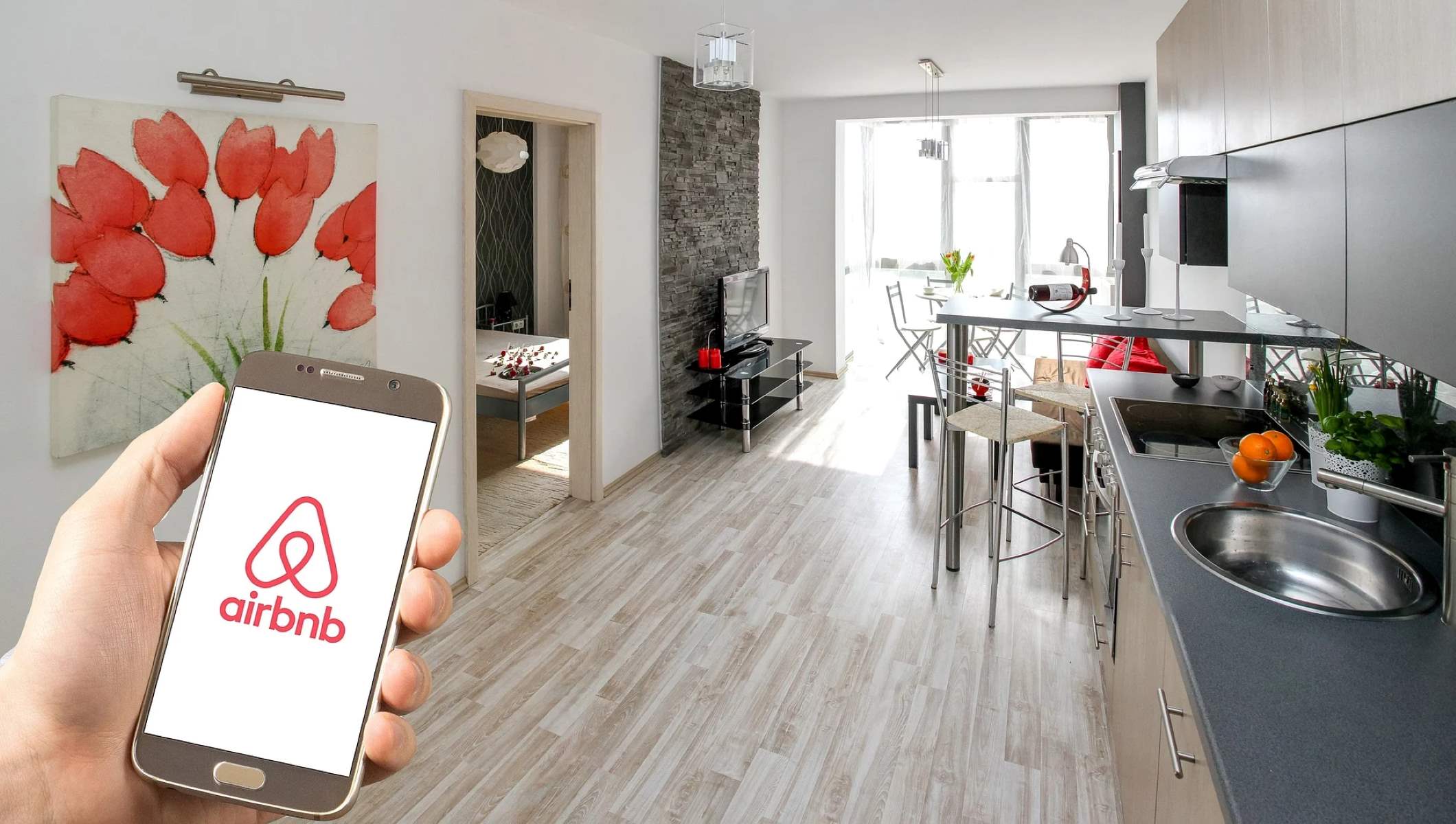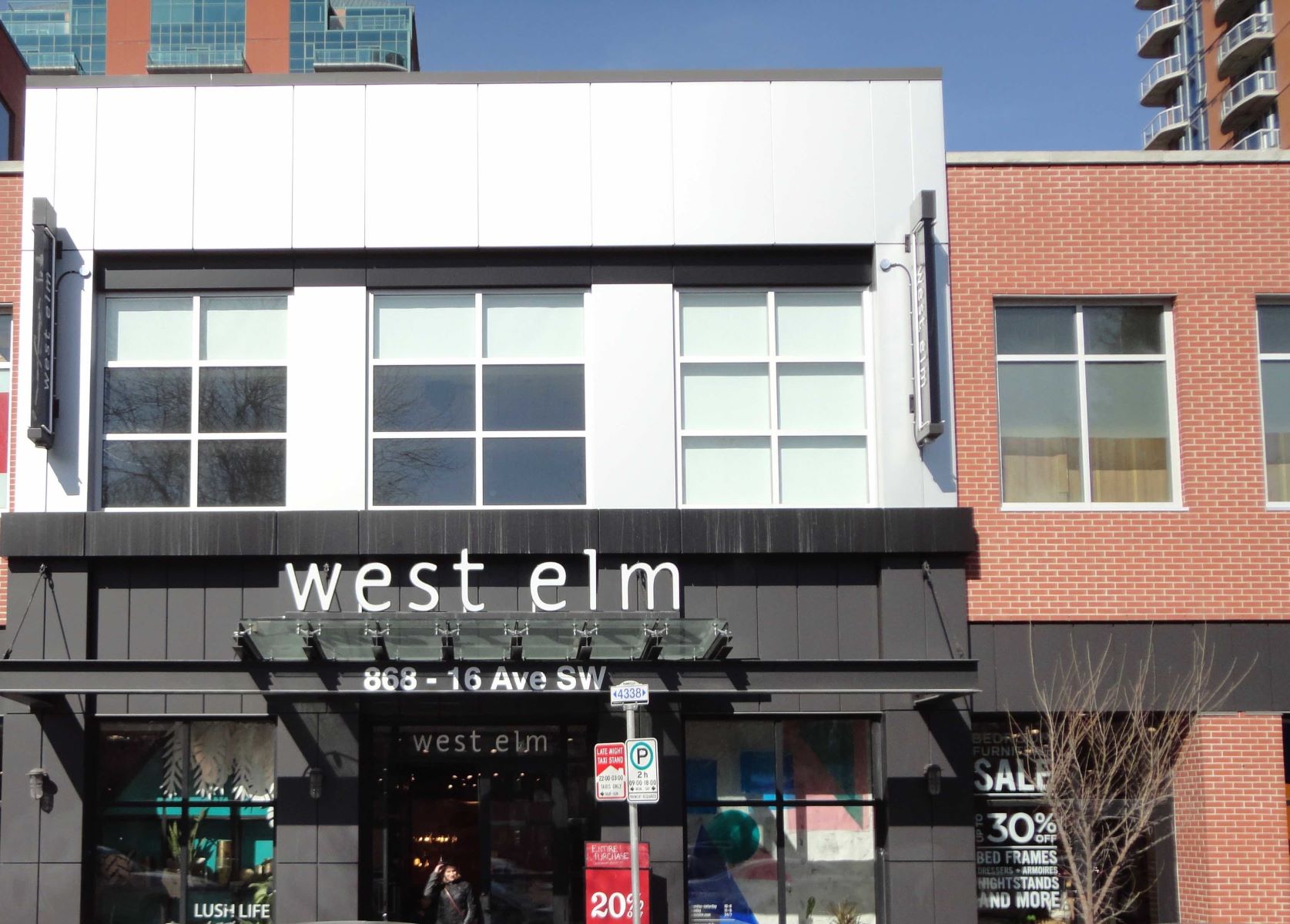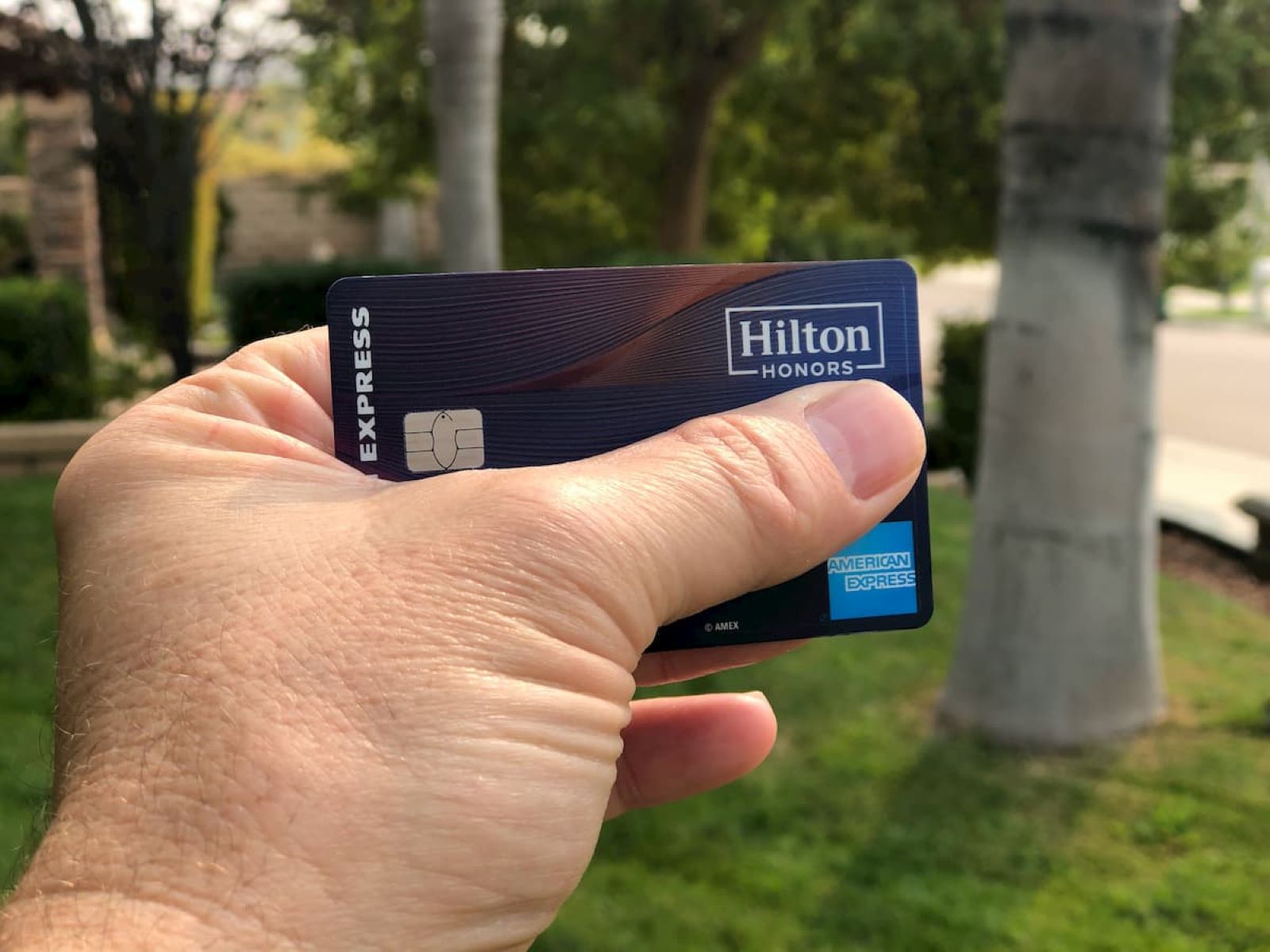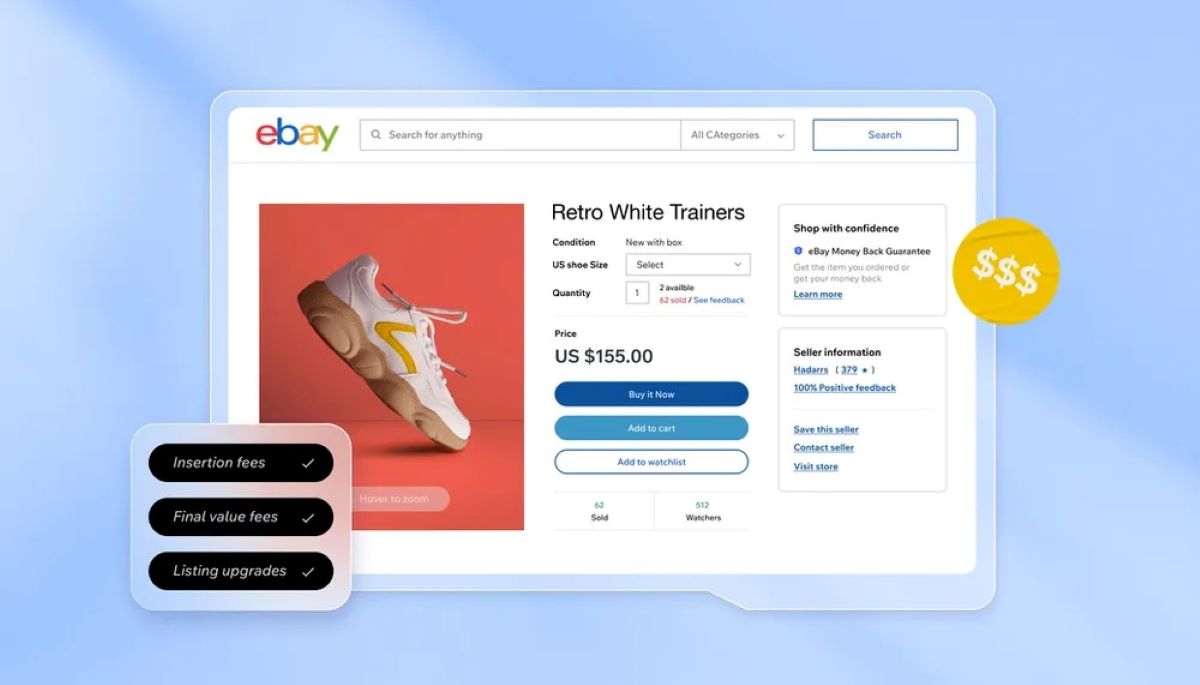

Finance
When Does Airbnb Charge Your Credit Card
Published: October 24, 2023
Learn about Airbnb's credit card charging process and find out when they charge your card for bookings, ensuring better financial planning and transparency.
(Many of the links in this article redirect to a specific reviewed product. Your purchase of these products through affiliate links helps to generate commission for LiveWell, at no extra cost. Learn more)
Table of Contents
Introduction
Welcome to the world of Airbnb, where travelers can find unique accommodations while connecting with local hosts. Planning a trip involves not only finding the perfect place to stay but also understanding the payment process. In this article, we will explore the intricacies of Airbnb payments and specifically focus on when your credit card is charged.
As travelers, it is important to have a clear understanding of the payment methods accepted by Airbnb. Additionally, knowing exactly when your credit card will be charged can help you manage your finances and plan your trip accordingly. This article aims to provide you with comprehensive information on the various aspects of Airbnb payments, so you can have a hassle-free booking experience.
Whether you are a first-time Airbnb user or a seasoned traveler, navigating through the payment process can sometimes be confusing. From understanding the different fees involved to knowing when a credit card charge is initiated, there are several factors to consider. By the end of this article, you will have a clear understanding of when Airbnb charges your credit card and what to expect during the booking and payment process.
So, let’s dive in and uncover the mysteries behind Airbnb payments and credit card charges!
Understanding Airbnb Payments
Before we delve into when Airbnb charges your credit card, it’s essential to understand how their payment system works. When booking a stay on Airbnb, travelers are required to pay the total amount upfront, which includes the nightly rate, cleaning fees, and any additional charges set by the host. Airbnb acts as a trusted intermediary, holding the payment until 24 hours after check-in before releasing it to the host.
For security purposes, Airbnb recommends conducting all communication and transactions through their platform. This ensures that both hosts and guests are protected and that payments are processed securely.
It’s worth noting that Airbnb charges a service fee for every booking made through their platform. This fee covers the costs of running the website, providing 24/7 customer support, and implementing various safety measures to protect users. The service fee is typically a percentage of the total booking cost and can vary depending on the price of the accommodation and the duration of the stay.
Airbnb also offers a feature called “Instant Book,” which allows travelers to instantly book accommodations without host approval. With Instant Book, the payment is processed immediately, and the credit card is charged at the time of booking instead of waiting until 24 hours after check-in. This feature provides convenience and a seamless booking experience for guests who prefer instant confirmation.
Now that we have a basic understanding of how Airbnb payments work, let’s explore the accepted payment methods and when your credit card is charged.
Payment Methods Accepted by Airbnb
When it comes to paying for your Airbnb booking, the platform accepts various payment methods to accommodate different preferences. Here are the primary payment options available:
- Credit and Debit Cards: Airbnb accepts major credit and debit cards, including Visa, Mastercard, American Express, and Discover. This is the most commonly used method and provides a convenient and secure way to pay for your stay.
- PayPal: If you prefer using PayPal for online transactions, you’ll be happy to know that Airbnb also supports this payment method. Simply link your PayPal account to your Airbnb profile and select it as your preferred payment option during the booking process.
- Google Pay and Apple Pay: For those who prefer using mobile payment platforms, Airbnb also accepts Google Pay and Apple Pay. Simply add your preferred method to your Airbnb profile and select it when making a booking.
- Gift Cards: Airbnb offers the option to redeem gift cards towards your booking expenses. If you have an Airbnb gift card, you can easily apply it during the checkout process.
It’s important to ensure that your chosen payment method has sufficient funds to cover the full cost of your booking. Airbnb may attempt to charge your card multiple times if the initial transaction fails, so it’s advisable to verify your payment details beforehand to avoid any issues.
Now that we know the different payment methods accepted by Airbnb, let’s move on to the next section to understand when your credit card is charged.
When is my Credit Card Charged by Airbnb?
When it comes to credit card charges on Airbnb, the timing can vary depending on the type of booking and the payment policies set by the host. Here are the different scenarios that determine when your credit card will be charged:
- Regular Bookings: For regular bookings where hosts review and approve each reservation individually, your credit card is typically charged within 24 hours of the host’s acceptance. This ensures that the payment is secured and the host is guaranteed their earnings. It’s essential to review the host’s cancellation policy before confirming the booking, as it may have an impact on refund eligibility in case of cancellations.
- Instant Bookings: As mentioned earlier, Instant Bookings offer the convenience of immediate confirmation. With this feature, your credit card is charged at the time of booking, subtracting the total cost of the accommodation, fees, and taxes.
It’s important to note that even though your credit card is charged at the time of booking or within 24 hours, Airbnb holds the payment until 24 hours after your check-in. This delay serves as a security measure and provides a window for you to report any discrepancies or issues with the accommodation upon arrival.
In some cases, Airbnb may initiate the charge process in multiple installments. For example, if you book a long-term stay that spans several months, Airbnb may charge your credit card in monthly increments.
It’s crucial to check the details of your booking confirmation and payment receipts to ensure that the charges align with the agreed-upon terms. If you have any concerns or notice any discrepancies, reach out to Airbnb’s customer support for assistance.
Now that we have an understanding of when your credit card is charged by Airbnb, let’s explore additional charges and fees you should be aware of.
Instant Bookings vs. Regular Bookings
When it comes to booking accommodations on Airbnb, you have the option to choose between instant bookings and regular bookings. Understanding the differences between these two options can help you make an informed decision based on your preferences and needs.
Regular Bookings: Regular bookings require the host’s approval before your reservation is confirmed. After selecting your desired dates and accommodation, you will need to send a booking request to the host. The host has 24 hours to review your request and either accept or decline it. If the host accepts your request, your credit card will be charged within 24 hours, securing your reservation.
Instant Bookings: On the other hand, instant bookings provide the convenience of immediate confirmation. With this option, you can skip the host’s approval process and book your stay instantly, without any waiting time. When selecting a listing that offers instant booking, you can proceed with the reservation by providing your payment details. Your credit card will be charged at the time of booking, ensuring that the accommodation is secured for your desired dates.
Choosing between instant bookings and regular bookings depends on your preference for flexibility and spontaneity. Instant bookings are ideal for travelers who want immediate confirmation and the ability to lock in their accommodations without waiting for host approval. It is a hassle-free option that provides peace of mind and faster booking experiences.
On the other hand, regular bookings allow more direct communication with the host, giving you the opportunity to discuss any specific requirements or ask questions before confirming your stay. This can be beneficial if you have specific needs or preferences that you would like to address with the host before finalizing your reservation.
Now that you understand the difference between instant bookings and regular bookings, let’s explore additional charges and fees you should be aware of when booking on Airbnb.
Additional Charges and Fees
When booking accommodations on Airbnb, it’s important to be aware of the additional charges and fees that may be associated with your reservation. Here are some common fees you may encounter:
- Service Fee: Airbnb charges a service fee for every booking made through their platform. This fee covers the cost of operating the website, providing customer support, and implementing safety measures. The service fee is typically a percentage of the total booking cost and can vary based on the price and duration of your stay.
- Cleaning Fee: Many hosts charge a cleaning fee to cover the cost of preparing the accommodation for your stay. This fee is typically a one-time charge and can vary depending on the size of the property and the cleaning standards set by the host.
- Security Deposit: Some hosts may require a security deposit to protect against potential damages to the property during your stay. The security deposit is held by Airbnb and is refunded to you after your stay, provided there are no damages or other issues reported by the host.
- Taxes: Depending on your location and the local regulations, Airbnb may be required to collect certain taxes, such as occupancy tax or value-added tax (VAT), on behalf of the host. These taxes are added to the total cost of your reservation and may vary based on the jurisdiction.
It’s important to carefully review the total cost breakdown before confirming your booking. Airbnb provides a transparent breakdown of all charges and fees associated with your reservation, so you can have a clear understanding of the final cost. This way, you can make an informed decision and budget accordingly for your trip.
Additionally, it’s worth mentioning that any modifications or additional services requested during your stay, such as changing dates, adding extra guests, or requesting additional amenities, may incur additional charges. It’s advisable to communicate with your host or Airbnb directly to understand any potential costs associated with these changes.
Understanding the additional charges and fees on Airbnb ensures that there are no surprises when it comes to the total cost of your reservation. Now, let’s explore what happens in the event of canceling a reservation and the refund process.
Canceling a Reservation and Refunds
Life is unpredictable, and sometimes plans change. If you find yourself in a situation where you need to cancel your Airbnb reservation, it’s important to understand the cancellation policies set by the host and the refund process. Here’s what you need to know:
Cancellation Policies: Each host sets their own cancellation policy, which determines the amount of refund you are eligible to receive in case of a cancellation. Airbnb offers three main types of cancellation policies:
- Flexible: If you cancel your reservation at least 24 hours before the check-in time, you will receive a full refund, including service fees.
- Moderate: If you cancel your reservation at least five days before the check-in time, you will receive a full refund, including service fees. If you cancel within five days of the check-in time, the first night and the service fee are non-refundable, but the remaining nights will be fully refunded.
- Strict: If you cancel your reservation at least seven days before the check-in time, you will receive a 50% refund of the nightly rate and the cleaning fee, while the service fee is non-refundable. Canceling within seven days of the check-in time means no refund will be issued.
Refund Process: If you cancel your reservation and are eligible for a refund based on the host’s cancellation policy, Airbnb will initiate the refund process. The refund is typically credited back to the original payment method used to make the booking. However, the timing of the refund may vary depending on your payment provider and can take several days to reflect in your account.
It’s important to note that Airbnb’s service fees are generally non-refundable, even if you are eligible for a full or partial refund based on the host’s cancellation policy. However, in extenuating circumstances, such as a COVID-19 related cancellation, Airbnb may provide refunds or travel credits even if the host’s cancellation policy does not offer one.
If you need to cancel your reservation, it’s essential to do so through the Airbnb platform to ensure that all communication and refunds are properly documented. Additionally, proactively communicating with the host can help in finding a mutual resolution or potential rescheduling.
Now that you understand the cancellation process and refund policies on Airbnb, let’s explore what happens in the case of disputes and chargebacks.
Disputes and Chargebacks
While Airbnb strives to provide a seamless and enjoyable booking experience, there may be rare instances where disputes arise between guests and hosts. If you encounter any issues during your stay or have concerns about the accommodation, here’s what you can do:
1. Communicate with the Host: It’s always best to try and resolve any issues directly with the host first. Reach out to them through the Airbnb messaging system and explain your concerns. Most hosts are willing to work towards a solution to ensure guest satisfaction.
2. Contact Airbnb Support: If you’re unable to resolve the issue with the host or need additional assistance, you can contact Airbnb’s customer support team. They are available 24/7 to help mediate conflicts and provide guidance. Be prepared to provide as much detail as possible regarding the situation, including any evidence or documentation.
3. Dispute Resolution: Airbnb has a resolution center that facilitates communication and negotiation between guests and hosts to resolve disputes. You can open a case in the resolution center and present your side of the story. Airbnb’s team will review the case and help find a fair resolution for both parties.
In some cases, guests may decide to initiate a chargeback with their credit card company if they believe they were wrongfully charged or if they were unable to resolve the issue with Airbnb or the host. It’s important to note that initiating a chargeback should be a last resort, as it can have implications for both guests and hosts.
If you are considering a chargeback, be aware that the credit card company will investigate the dispute and can request additional information from both parties involved. It’s essential to provide any evidence, documentation, or communication records that support your claim.
Keep in mind that initiating a chargeback without proper justification can result in penalties, such as being banned from Airbnb or facing legal consequences. It’s advisable to exhaust all options for resolution through Airbnb’s platform before considering a chargeback.
Now that we have covered disputes and chargebacks, let’s conclude the article with a summary of the key points discussed.
Conclusion
Navigating the payment process on Airbnb is crucial for a smooth and hassle-free booking experience. Understanding when your credit card is charged, the accepted payment methods, and the different booking options can help you make informed decisions and plan your trip accordingly.
Airbnb’s payment process involves upfront payment, with the credit card typically charged within 24 hours of the host’s acceptance for regular bookings. Instant bookings, on the other hand, require immediate payment at the time of booking. It’s important to review the host’s cancellation policy to understand refund eligibility in case of cancellations.
Airbnb accepts various payment methods, including credit and debit cards, PayPal, Google Pay, Apple Pay, and gift cards. By ensuring that your chosen payment method has sufficient funds, you can avoid potential issues during the transaction process.
It’s also essential to be aware of the additional charges and fees associated with your reservation, such as service fees, cleaning fees, security deposits, and taxes. Reviewing the breakdown of charges before confirming your booking allows you to budget accordingly and avoid any surprises.
If you need to cancel your reservation, understanding the host’s cancellation policy is crucial. Airbnb offers different levels of refund based on its flexible, moderate, and strict cancellation policies. Initiating a cancellation through the Airbnb platform and following the refund process ensures a smooth and transparent experience.
In the event of disputes or issues, communication with the host and Airbnb’s customer support should be the first steps towards finding a resolution. Utilizing Airbnb’s resolution center can help mediate conflicts and find a fair outcome for both guests and hosts.
While chargebacks can be an option for resolving disputes, they should be considered a last resort. Initiating a chargeback without proper justification can have consequences, including being banned from Airbnb or facing legal actions. It’s advisable to exhaust all options for resolution through Airbnb’s platform before considering a chargeback.
With a solid understanding of Airbnb payments, credit card charges, and the resolution process, you can confidently book your accommodations on Airbnb, knowing that you are well-informed and prepared for any potential scenarios that may arise.
So, go ahead and explore the unique and exciting accommodations Airbnb has to offer, all while having a clear understanding of the payment process and ensuring a delightful travel experience!














